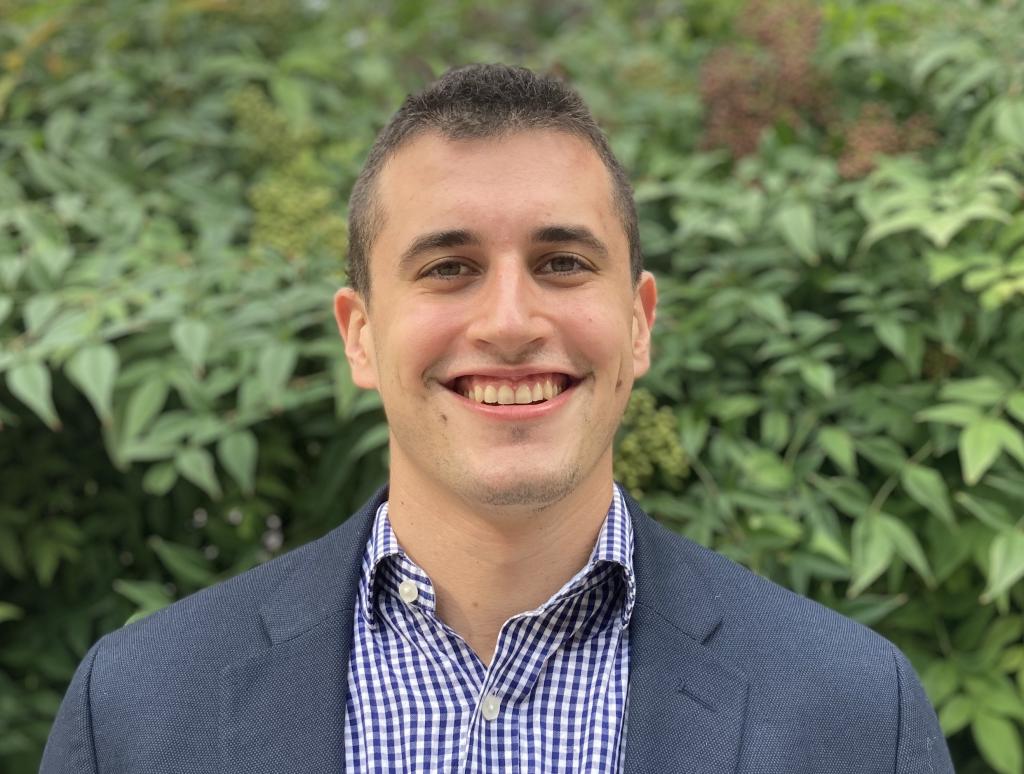The Lawfare Podcast: A Scandal at the UN
Published by The Lawfare Institute
in Cooperation With

David Fahrenthold is a reporter who works for the New York Times. In his capacity as a reporter at the Washington Post, he reported on misdeeds within the Trump financial universe, and now he’s come out with a story in the Times about a peculiar financial scandal at the United Nations. It’s about a little known UN agency trusting tens of millions of dollars to a relatively unknown British businessman and the investment not quite working out. Jacob Schulz talked with David about his story and about the broader world at the United Nations that enabled this to happen.
Editor's note: Following the release of this episode, Lawfare received a letter from attorneys representing David and Daisy Kendrick taking issue with some of the representations made during the course of the discussion. Below are excerpts from that letter stating the positions of Mr. and Ms. Kendrick.
Mr. Kendrick “wish[ed] to highlight” the following:
1. SHS Holdings’ loans with UNOPS, to which the Podcast appears to refer, are linked to tri-partite agreements signed in March 2019 between SHS Holdings, UNOPS and relevant countries, the terms of which are confidential, as is customary in such agreements. SHS Holdings is therefore bound by its duties of confidentiality to its partners and is not at liberty to disclose the detailed terms of these agreements. SHS Holdings is able to say however that it was never granted or gifted any money by UNOPS but is the recipient of a loan from UNOPS on purely commercial terms. It is not a contractor of UNOPS, as is sometimes wrongly suggested, but rather its relationship with UNOPS is one of strategic partners and borrower to lender. These agreements and loans were the result of many months of discussions and negotiations between senior executives of SHS Holdings and UNOPS, were approved by both boards and were then duly signed by Grete Faremo, the UNOPS Executive Director, and the SHS Board Chairman and Director. Hence, from SHS Holdings’ perspective, the process whereby these agreements were concluded was entirely appropriate and legitimate, and SHS Holdings has no reason to believe the same was not true of UNOPS.
2. Contrary to what has been suggested, and as UNOPS itself has made clear in its press release on 17 April 2022 in relation to S3i, “to date, no funds have been lost” by UNOPS. It is also important to bear in mind that the rescheduling of a loan facility is far from uncommon, particularly in light of the pandemic and other exogenous variables.
3. As stated, and as is publicly known, SHS Holdings is currently in a restructuring process with UNOPS regarding its loans and this restructuring process is critical to ensure the commercial viability of all the projects to which SHS Holdings is currently committed. As is customary, SHS Holdings’ ongoing negotiations with UNOPS in this regard are confidential, so SHS Holdings is not at liberty to disclose their content at this juncture.
4. SHS Holdings has always been and remains fully committed to delivering all of its projects. These projects are extremely complex and long-term, running over many years (typically, programmes of this size may have a time horizon spreading over two decades or more), so their ultimate success can only be measured over their entire duration rather than by narrowly focusing on a particular instant in time. The first few years of such projects are also typically those when progress is least visible as they involve such matters as planning applications, finalising land allocations, local company set-up and regulatory compliance processes, setting up specialist factories to produce building materials, attracting on-going investment, setting up country government liaison committees, mobilising labour force etc. As a result of their complexity, these projects are also inevitably dependent on a large number of variables many of which are beyond SHS Holdings’ control. In particular, the implementation of these projects has been less swift than originally anticipated as a direct result of the Covid-19 pandemic and restrictions, which no one could have possibly envisaged and over which SHS Holdings clearly had no control. SHS Holdings’ operations in some countries have also been delayed by regressive governmental policies and actions, such as in Mexico where the government has regrettably adopted a number of national measures seeking to harm investments in renewable energy projects which are currently being successfully opposed by a significant consortium of global energy companies before the Mexican Courts. In spite of these unforeseen and substantial challenges, SHS Holdings has already achieved a significant amount of progress and will continue to move forwards on all of these projects in order to ensure their full success. Despite flawed and biased accounts to the contrary in the media, a number of projects are already successfully operating and growing, including for instance in Mexico where the Santa Catarina wind farm is operational and selling wind energy to local municipalities, as well as agreeing significant new power purchase agreements for the sale of energy. In other parts of the world where building works and operations may have been affected by unforeseen delays, SHS Holdings is confident that these will begin soon. In all cases, SHS Holdings is confident that it will deliver all of its key targets for the benefit of all parties and the local communities involved. Despite the hurdles it faces, SHS Holdings has also paid some $6 million interest back to UNOPS thus far.
Ms. Kendrick “wishe[d] to highlight” the following:
1. Ms Kendrick is proud of her work for “We Are The Oceans” (“WATO”), an innovative and global programme which successfully raised awareness for ocean protection and was loved by the many children and young adults that engaged with it all around the world. Ms Kendrick’s hard work and dedication enabled WATO to successfully meet all its key performance indicators (“KPIs”) as set by UNOPS and to propel it to become – with the help of collaborations with leading artists such as the best-selling musician Joss Stone – a well-known global campaign which successfully achieved its key aim of promoting ocean protection.
2. WATO, entirely legitimately, successfully applied for a grant, diligently following UNOPS’ procedures. WATO set out their proposal to UNOPS for music, gaming and social media campaigns for the oceans, which were considered and approved by UNOPS in a legitimate process controlled by UNOPS. All of WATO’s activities, budgets and projects were also pre- approved by UNOPS, and the rates paid to all WATO’s participants were at all times legitimate, fair, in-line with market norms and certainly not excessive.







